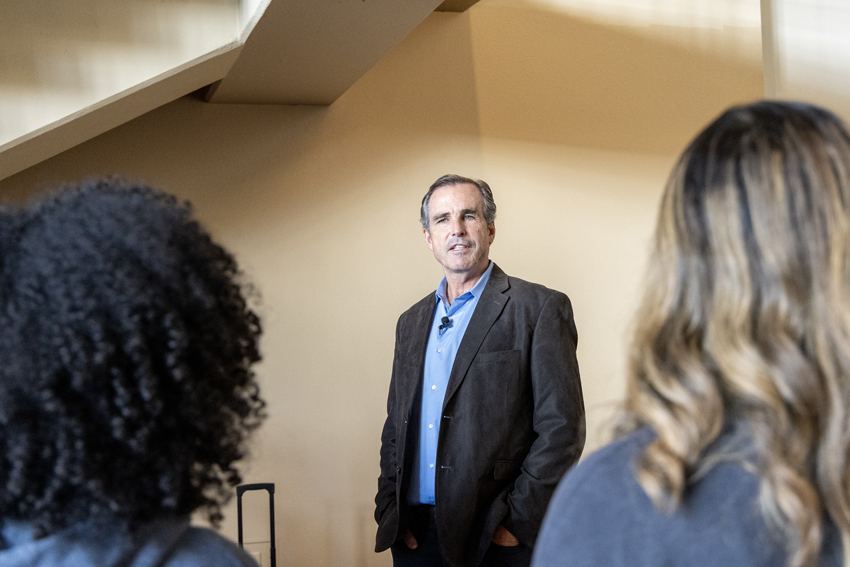This is the first of an occassional series outlining the most unusual experiences of the FC community.
What would you do with 100 lbs. of raw fat trimmed from tri-tips, served at a banquet? You could dispose of it in a dumpster, but law prohibits this. Instead, it requires the fat be taken to a rendering plant where it can be environmentally processed.
This, however, is only the beginning of the story.
The day before the Aug. 24 football kickoff dinner, the cooks did not know how to dispose of the raw fat. With the knowledge that it is illegal to dump it in the trash, they had to find an alternative place to dispose it. Unfortunately, not many of these rendering plants are open after 9 P.M.
Chris Schultz, athletic director, offered to drive the 100 lbs. of beef fat to the processing plant in Kerman, CA. Not wanting to drive alone, he called fellow teacher, C.J. Haydock, multimedia arts instructor, and convinced him to tag along.
Eventually, after getting lost in eastern Fresno County, Schultz and Haydock found Baker Commodoties, Inc., but discovered the office in the front of the parking lot was completely deserted.
As they explored the premises in hopes of finding a person to help them, a noticeable stench began to overwhelm them, and both Haydock and Schultz noticed many cats wandering around.
Finally, they managed to find a worker who oddly wore a pair of waders and thick rubber boots despite the 90-degree heat at 11:30 P.M. When they asked where they should dispose of the animal fat, the worker told them, in broken English, “take the fat around behind the factory and throw it into ‘the pile’.”
As they rounded the corner, the headlights illuminated a scene that looked like something from a horror movie: a steaming pile of skinned, rotting and bloated animal carcasses. The heap was 50 yards long, 50 yards wide and three feet high. Now they understood the worker?s unusual waterproof attire.
“It looked like a scene from the Holocaust,” Schultz said. “It was the most disgusting and disturbing thing that I have ever seen.”
As Schultz and Haydock exited their truck, they realized, after splashing through a puddle on the ground, that they were standing in the lumpy liquefied fat runoff from the pile. The massive stack of dead pigs, cattle, and other various animals emitted an eye-watering stench, which almost caused Haydock to view his dinner a second time.
“Words don’t do it justice,” Haydock said. “It was a mixture of death, wet rubber and rotting things. It looked like something from a war movie, full of carnage and filth. And the worst part of it, the pile seemed to move as we got closer.”
In order to keep the splash from sending body parts, fat and other putrefied liquids flying towards them, they heaved eight bags of fat as far as they could on the pile. As they returned to their car, the traumatized twosome noticed a group of workers had gathered to watch them. All dressed in waders and rubber boots, the graveyard crew of four chuckled, waved and smiled.
While they were leaving, the workers stopped and warned them to wash the truck tires or the gut-wrenching smell would follow them home. Both Schultz and Haydock laughed at the suggestion and headed back to Fresno without another thought.
As they traveled from the waste site, the teachers realized the stench remained ever pungent. They were devastated to discover that the run-off of fat and liquid death was still caked on their shoes and tires. And now the stench had become a part of the vehicle and seemed to permeate every inch.
The stench clung to everything. When Schultz and Haydock finally returned to Fresno at about 1 A.M., they both scrubbed the school’s Ford F-150 for about an hour with ammonia, bleach, Febreze, Windex, dish soap, Clorox, and warm water in an effort to remove the stench.
“It was similar to the ‘Smelly Car’ episode in Seinfeld, where they couldn’t rid themselves of the car B.O.,” Schultz said.
The fabled fat story now stands as a permanent anecdote for Fresno Christian’s most unusual experiences.
“For weeks to come, I would wake in the night with my nostrils filled with the horrible stench and be reminded of that horrific encounter,” Haydock recalled. “But next time, I would rather drive to ten different dumpsters in town or preferably, Schultz can go by himself.”






